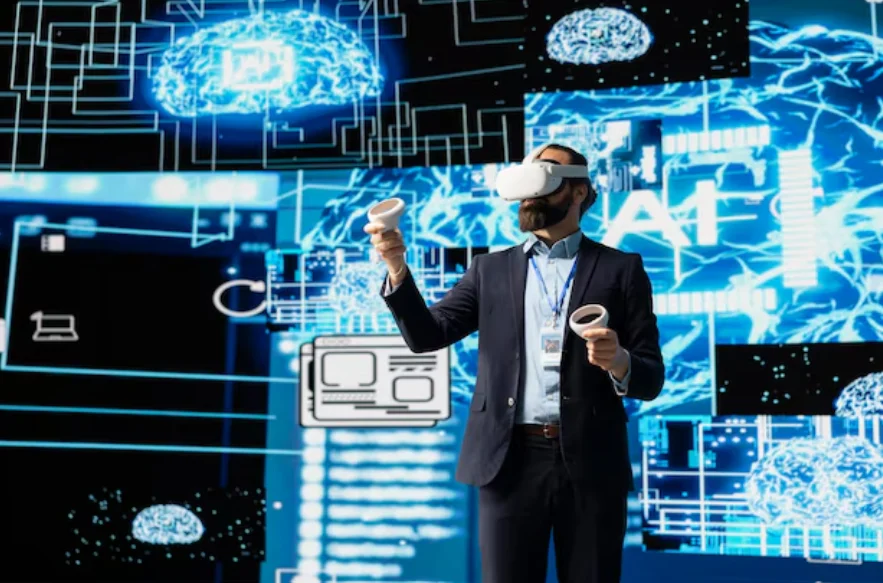The Future of Voice Cloning: Ethical Considerations and Applications

Introduction
Voice cloning technology has advanced rapidly in recent years, enabling the recreation of a person’s voice with stunning accuracy. What once seemed like science fiction is now a reality, powered by artificial intelligence (AI) and deep learning. From entertainment and accessibility to customer service and content creation, voice cloning is transforming numerous industries. However, as with any technological advancement, ethical concerns and challenges arise.
This blog explores the future of voice cloning, its various applications, and the ethical dilemmas surrounding its use. By understanding these aspects, we can ensure responsible innovation while harnessing the potential of this revolutionary technology.
What is Voice Cloning?
AI Voice cloning is the process of replicating an individual’s voice using AI and machine learning. This technology analyzes audio samples to recreate a voice that sounds natural and can generate speech in real-time or via text-to-speech conversion.
How Voice Cloning Works
- Data Collection: The system collects voice samples from the target speaker. The more data available, the better the cloned voice will sound.
- Feature Extraction: AI models analyze pitch, tone, cadence, and pronunciation patterns.
- Model Training: Deep learning algorithms, such as Generative Adversarial Networks (GANs) and neural networks, train on the extracted features to create an accurate voice model.
- Synthesis & Fine-tuning: The model refines speech generation to make the cloned voice as authentic and expressive as possible.
Modern AI-powered voice cloning tools, such as OpenAI’s Whisper, ElevenLabs, and Resemble AI, have made this process accessible to a wide range of users, from businesses to individual creators.
Applications of Voice Cloning
Voice cloning has a vast array of applications, from improving accessibility to transforming entertainment and marketing. Let’s explore some of the most promising use cases:
1. Entertainment & Media
- Film & TV: Voice cloning allows filmmakers to replicate actors’ voices, enabling posthumous performances or voice-over work without extensive reshoots.
- Gaming: Video game developers can create more dynamic, personalized characters using cloned voices.
- Audiobooks & Podcasts: Voice cloning enables consistent narration across different projects, even when the original speaker is unavailable.
2. Accessibility
- Assistive Technology: Individuals with speech impairments or degenerative diseases (e.g., ALS) can preserve their voices for use with speech-generating devices.
- Multilingual Support: AI-powered voice cloning enables real-time translation while maintaining the speaker’s original tone and style.
3. Customer Service & Business Applications
- Virtual Assistants & Chatbots: Companies can enhance user experience with lifelike MUN chat gpt, AI voices in customer support.
- Branding & Marketing: Personalized AI-generated voiceovers can be used for advertisements and automated messaging.
4. Education & Training
- E-learning: AI-generated voices can deliver educational content in multiple languages while keeping the original speaker’s authenticity.
- Corporate Training: Companies can create customized training materials with familiar voices to enhance employee engagement.
5. Healthcare & Therapy
- Speech Recovery: Patients recovering from speech loss due to medical conditions can use cloned voices for communication.
- Mental Health & Therapy: AI-generated voices can provide comfort in therapeutic applications, such as meditation or relaxation guides.
While these applications highlight the positive potential of voice cloning, ethical considerations must be addressed to ensure its responsible use.
Ethical Considerations of Voice Cloning
1. Consent & Privacy
A major ethical concern is the unauthorized use of someone’s voice. Without explicit consent, voice cloning can lead to privacy violations and exploitation.
- Deepfake Scams: Fraudsters can impersonate individuals to commit identity theft, phishing attacks, or financial fraud.
- Data Security: Storing and using voice data poses risks if mishandled or accessed by malicious actors.
Solution: Strict regulations and consent-based policies should be implemented to protect individuals from unauthorized voice cloning.
2. Misinformation & Deepfakes
Voice cloning can be used to create misleading content, including fake news, hoaxes, and political propaganda. High-profile figures, such as politicians and celebrities, are particularly vulnerable.
Solution: Developing AI tools to detect and label synthetic voices can help mitigate the risks of misinformation.
3. Legal & Copyright Issues
Who owns a cloned voice? This question remains a gray area in intellectual property law. Some argue that voice cloning should be treated like biometric data, requiring legal protection.
Solution: Governments and regulatory bodies should establish clear guidelines on voice ownership and licensing to prevent misuse.
4. Impact on Employment
As AI-generated voices become more sophisticated, concerns arise about job displacement in industries like voice acting, call centers, and narration.
Solution: Rather than replacing human workers, AI should be used as a complementary tool. Ethical businesses can adopt hybrid approaches, where AI assists rather than replaces voice professionals.
5. Bias & Fairness
AI models trained on biased datasets may reproduce discriminatory speech patterns or fail to represent diverse accents and dialects.
Solution: AI developers should prioritize diverse and inclusive training data to ensure fair representation across languages and cultures.
The Future of Voice Cloning
Looking ahead, voice cloning will continue to evolve, offering more sophisticated and ethical applications.
1. Advancements in Personalization
Future AI models will offer enhanced personalization, allowing users to create unique, expressive voices tailored to specific needs.
2. Ethical AI Governance
Tech companies and governments must collaborate to establish ethical AI guidelines, ensuring responsible voice cloning practices.
3. Blockchain for Voice Verification
Blockchain technology could be used to verify the authenticity of voices, preventing deepfake abuse and ensuring trust in digital communication.
4. Real-time AI Translation & Dubbing
Voice cloning will enhance global communication by providing real-time translation while preserving speakers’ original vocal qualities.
5. Hybrid AI & Human Collaboration
Rather than replacing human voices, AI will serve as an enhancement tool, supporting content creators, businesses, and accessibility solutions.
Conclusion
Voice cloning is a powerful and transformative technology with immense potential across multiple industries. However, ethical concerns must be addressed to prevent misuse and ensure responsible deployment. By implementing legal frameworks, securing consent, and advancing AI detection tools, we can balance innovation with ethical integrity.
As the future unfolds, voice cloning will continue to reshape communication, accessibility, and entertainment. Responsible development and regulation will be crucial in shaping a future where AI-powered voices enhance, rather than endanger, human interaction.
What are your thoughts on voice cloning? Should regulations be stricter, or do the benefits outweigh the risks? Share your opinions in the comments below!

Your AI Isn’t Wrong, It’s Alone: Why Model Disagreement Is the Real Enterprise Risk

SEO for ChatGPT: Boost Your Brand in AI Responses

Unlocking Innovation: How an AI Software Development Service Can Transform Your Business


